O Captain! My Captain! They say you’re not supposed to meet your heroes, but what happens when you do, and your hero is everything you wanted her to be, and more? Here’s what happens: you get swept up in her thoughtful eloquence, not to mention the way she says your name throughout your discussion, and then must live with the regret of all the questions you didn’t ask as you rode the joyful waves of finally getting to have a conversation with her.
Kate Mulgrew (Star Trek: Voyager’s Captain Janeway) and I talked about her new book, How to Forget: A Daughter’s Memoir, written about the time she spent caring for her parents while each was dying—her father from cancer, her mother from Alzheimer’s, both diseases cruel in their own distinctive way.
She was unsurprisingly punctual, gave me slightly more time than I had been allotted, and cemented my unwavering admiration for her throughout. Had she given me any orders when we wrapped up our conversation, I would have followed them!
Look for part two of this interview in a few days, where she talks about Star Trek: Voyager‘s legacy, her take on Star Trek rivalry, and more.
I loved your first memoir [Born With Teeth], but I loved this one too, and it was very different.
How so?
The first one was about events, and it was linear. And then the second one had this very different sort of lyrical feel to it. And when I heard you talking about where you were when you wrote it, suddenly everything clicked and it made complete sense as to why the style was so different.
Right. Yes, place had an important role in this, Ireland did. But I think also, who I really am had a far more imperative role in this book. The first book was clearly, by anybody’s standards, a purely freshman effort. It was my first book and my first effort at that, and I was trying to just get it out there.
So, as you just said, it was very linear, very sort of predictable, streamlined. Not without its amusements, but certainly lacking, I think, a certain, as you just said, lyricism or depth. Which I hope that How To Forget has, because I took the deep dive on this book. And… uncharted waters, and I stayed down there for some time, and this is what emerged.
I wept a few times while I was reading it. Did you cry while you were writing it? What was your emotional state like?
I cried a lot. Aren’t you funny. Only a woman would be that astute. Yeah, I cried a lot. Loneliness is a treacherous state anyway, and just put yourself in my shoes—I was in Ireland, in the wintertime, where it is dark almost all day. There is a short window of light from 10:00 until 2:00, and then the darkness is upon one again. So I forced myself to write from—I didn’t force, I wanted to, because it was survival—to write from about 9:00, maybe sometimes 10:00, until 4:00 in the afternoon, after which I would light the fire and start to get dinner ready, or take a walk.
And it’s then that the tears would come. Not during the writing. That happened occasionally. But after the day’s writing I would cry. And those were the tears of, I think, excavation. I think if you dig deep enough to physicalize the scratching, the wrenching, the ripping apart, you’re going to cry out in pain, and in lucid memory. And a lot of those tears were for little Katie, who didn’t have much of a say at all in Born With Teeth, but does have a little bit more of a say in How To Forget. And her journey was an intense one to take this time.
What made you decide that this story of the loss of your parents—and not just their loss, but every stage of it—was a story that you really wanted to tell?
Because it’s Greek. It’s every man’s experience, at least among those of us who have loved our parents, who have lost them. These are the people who shaped me, without whom I lack all definition. And to have taken the journey of life with them, and then suddenly to have taken that turn in the road to sickness, and then to death, is a universal trip. And it cannot be other than austere in its frankness, because that is what it is. We know that that turn, that bend in the road, does not go into the flowering meadow, but into a darkening thicket from which they will never return.
And it is that heartsick resolution with which we sort of plod through their illnesses, and with which we face their deaths. And it shapes the rest of our lives, and in this case, in How To Forget, had a very big part in my yearning to remember them as they had once been, when they were young.
You have a lot of siblings, and it’s their very personal story, too, so how did they react to you saying you were going to write about your parents?
Well I told them I was going to write it and everybody, they were on board with that. They’ve read Born With Teeth, albeit some of them reluctantly. Each one of them has a different perception of what I’m doing, and a different perspective of its value.
In this case, in this book, my brothers Joe and Sam are featured in parts one and two. And therefore, their privacy above and beyond my other siblings is most invaded. My brother Joe is an innately private person, who having given his approval initially, I think probably regretted that he had done so, because I do present him as he is clearly remembered by me to have been as a young man.
And certainly as a man facing his father’s death, he would not want that exposed. And although we agreed that it would be all right one night over a couple of bottles of wine, it’s quite another thing to see it in print.
Whereas Sam, in part two, in my mother’s story, loved her so much that even though he would consider some of what I’m saying to be inaccurate because it’s all subjective, I think loves that I have immortalized her, and how she made us feel, and the love that she engendered.
You used the word “inaccurate,” which makes me think about memory and how much it can trick us. You seem to have a very remarkable memory for detail. Is that your actor’s brain?
No, that’s my mind. I’m only writing about the lucid memories, the vivid memories. I let the more opaque memories slide, because there’s no point in trying to make a memory out of something that’s only half-baked. And lots of memory is elusive, lots of it is darkening. Even as we are striving to remember it, it is eluding us.
But these memories in this book are clearly captured, and they are quite vivid to me. I must have photographed them on the day, on the month, and the year. I must have photographed them, and enclosed them in that vault, because out they came, out they sprang. Now, again, I can assure you that Joe would say, “No, this is not exactly how it happened.” But it’s exactly how I happened to me.
It happened in the dining room, over dinner. Now, he can dispute that, and in that disputing, a panel of experts might find him to be more correct, but I have to honor the memory as it resides in my brain.
And they feel like photographs sometimes when you’re describing them.
A lot of it is. I did, for many years, enjoy the benefit of an almost photographic memory, certainly when I’m learning lines or things like that.
So I photographed those moments. I was not a foolish child, nor was I preternaturally wise, but I was alert, and I was present. And I knew, when my father took me to the supper club after my first great failure, to remember that, to have the wherewithal to remember that, to record it. And so I did. Down to the condiments dish (laughs). And the look in his eyes.
People’s hands in their pockets …you describe everything. I know the moments when you get that terrible phone call—with those moments I’m the same, and I know what the air was like and the sounds were like. But you actually seem to remember much of your life in vivid detail.
I do. I think it’s because when you come from a family as… what should I call it? As dramatic, as vivid, as essentially big as mine, you’re likely to want to remember. My siblings were larger than life, my parents were huge. I had an early recognition of the outsized importance of the family. There was an epic component to my family, and I think that this stirred up in all of us a love of memory, or a need to remember.
One part of the book that really struck me when you described bathing your father, and how there was a nurse who was there and she was paid to do it, but you asked her to leave. What I wanted to know as I was reading was what drove you to do that, because it’s such a difficult task, most people wouldn’t want to do it.
Isn’t that funny? I did it with my mother, as well. It came to me as natural as breathing. It seemed to me my primordial right, to bathe my father, and to dress him for his death. It seemed my right, not some hospice nurse. I wanted to do it.
So no hesitation at all?
Absolutely none. No.
It’s a powerful and beautiful part of the book.
Thank you. With my little sister there. And she reminded me, Jenny—too late, because now the book is done—that Laura was there, as well. I don’t remember that, you see? There you have selective memory.
What was the experience like recording the audiobook?
(laughs) That was something.
I’ve done a lot of books. To go into that booth alone and let it rip is fun for me. But in this case, it was hard. First of all because I really tried with this book to walk the plank. I really tried to not be one iota less than I could be in the literary invocation of my parents’ deaths. And therefore, in the retelling in the recording booth, I was an absolute perfectionist, and often would come to tears and then I would make them stop so that the tears could fade, and start again.
I went back at least, it seems to me, two or three times to correct certain things. I was avid in my need to perfect the audio version of this book. I wanted every cadence and inflection to be correct. There’s something about this book that I must honor.
Okay, now this avowed non-audio book person is definitely buying it.
You’ll get certainly many things from it that you wouldn’t necessarily immediately get from the book. When I’m young, I’m young, and vocally when I’m older, I’m older vocally. When I’m fat, I’m fat vocally, so you might want to take that trip. Or not, as the case may be. Maybe your imagination is sufficient.
(Scroll down for an excerpt from the audiobook.)
Read part 2 of our interview with Kate Mulgrew, where she talks about Star Trek: Voyager’s legacy, her thoughts on writing a memoir about it, Star Trek: Picard, and more.
Buy the book
Buy your copy at Amazon, in hardcover, e-book, or audiobook (narrated by Kate Mulgrew).
Audiobook excerpt
With a message to listeners from Kate Mulgrew.

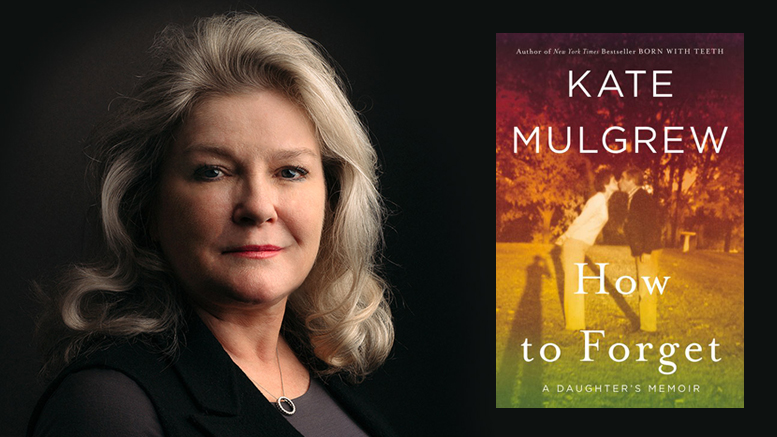
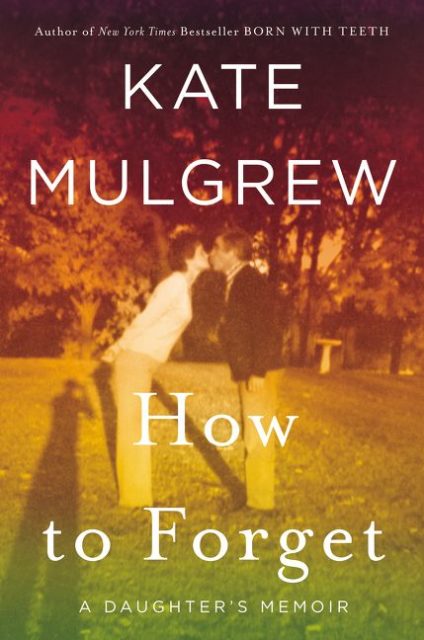
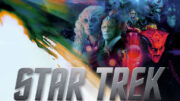
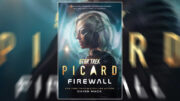
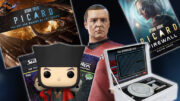
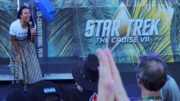
Great interview. She’s a class act.
Yes she is !!
I think I’m going to buy this book. After losing both my parents in a very similar way, I want to hear her story. Mostly, because, It gives one comfort to know that you’re not the only one out there who has been through it and come out the other side.
I’ve always considered Kate to be a class act. This recollection of her insistence to perform seemingly simple, everyday tasks for her parents, strikes a cord with me, as I helped care for a grandfather with dementia and now face helping care for a father with Alzheimer’s. Thank you, Kate, for the tears that will surely come.
I really miss Kate Mulgrew in Star Trek! One of the best actors in the franchise. Would love to see Janeway again, even if just for an episode, which is thankfully now possible!
Anyway a very classy and smart woman. I had no idea she had so much tragedy in her life. Thank you for the interview Trekmovie. It was pretty enlightening and can’t wait for part 2.
I could listen to Kate reading the New York City phone book. I will DEFINITELY buy the audiobook. This sounds heartbreaking—and marvelous.
I was at the cast and crew premiere of Voyager on the Paramount lot one day before the show aired on TV. I was blown away by her and shook her hand after the screening. I’ve been a fan of her’s ever since. Solid intellect. Sharp whit. Love the way she speaks as much as I love what she says. A Star Trek: Janeway series please!
Generally, I’ve been opposed to TNG era cast popping up on the Picard show, I’d make an exception to Kate Mulgrew. She could hold her own opposite Stewart. I suspect she’d also know to say no to a substandard fan service role.
Yes, even though it was small, I loved the scene between them in Nemesis. I would love to see both of them in the same room, working out a problem together. Picard and Janeway, two great intellectuals, debating each other would be glorious to watch!
I’ve always found Kate to be fantastically eloquent and beautifully intelligence. She was my heroine growing up and she remains a huge source of inspiration to me in my thirties. A wonderful, wonderful soul.
Given this ADD world it’s refreshing to read even an interview with someone so marvelously articulate.
I haven’t read her first memoir yet, but I have a copy and want to. I’m going to get this one, as well; sounds great.
I saw Mulgrew speak at a con once, and was entranced the entire time. She’s electric.
Re: the question about bathing one’s parent, my partner lost his father this winter, and he insisted on bathing him after he passed on. He did the same for his grandmother some ten years ago. He said that they bathed him when he was unable to do it for himself, and at the end of their lives, when they could no longer bathe themselves, it was his duty in a sense; the last thing he was able to do for them. It’s very personal and very intense, but I think that it speaks to his character in a very deep way that few other things can.
Alzheimer’s is a horrible disease. We keep edging closer to a cure, only to have it yanked back. My wife’s grandmother finally succombed to it a few months short of 101, and her mom is showing signs of diminshed capacity. Unfortunately, she’s quite angry about it, and there’s little to suggest that she won’t accept any help without a fight.
I absolutely love Kate. Any audiobook she performs I instantly purchase just because of the pleasure of listening to her gorgeous Hepburn-like voice (regardless of knowing what the audiobook is about). I really hope she gets to put on the uniform again!
Is the order given, Admiral Janeway?
Some people seem larger than life, and Mulgrew is one of them. I’ve read Leonard Nimoy’s autobiographies several times; I think maybe it’s time I check out Mulgrew’s.
Wish she had been given a series in a more exciting era than bland TNG or that Voyager had been allowed to develop beyond wallpaper TNG (ship takes irreparable damage, desperate for resources, having to build a new alliance, desperation fighting the Borg, etc).
You’re a constant broken record lol. We get it you don’t like TNG style of Trek. Too bad. But no one forced you to watch it all either chief. I on the other hand LOVE IT and I love Voyager! A big part of it because of Janeway.
Star Trek: Janeway
Make it happen.
It’s “Everyman’s experience,” not “every man’s.” She referencing some of the earliest theater — the Everyman play.
My favorite Star Trek captain. And the more I read about her the more I like her. She comes across as being very human.